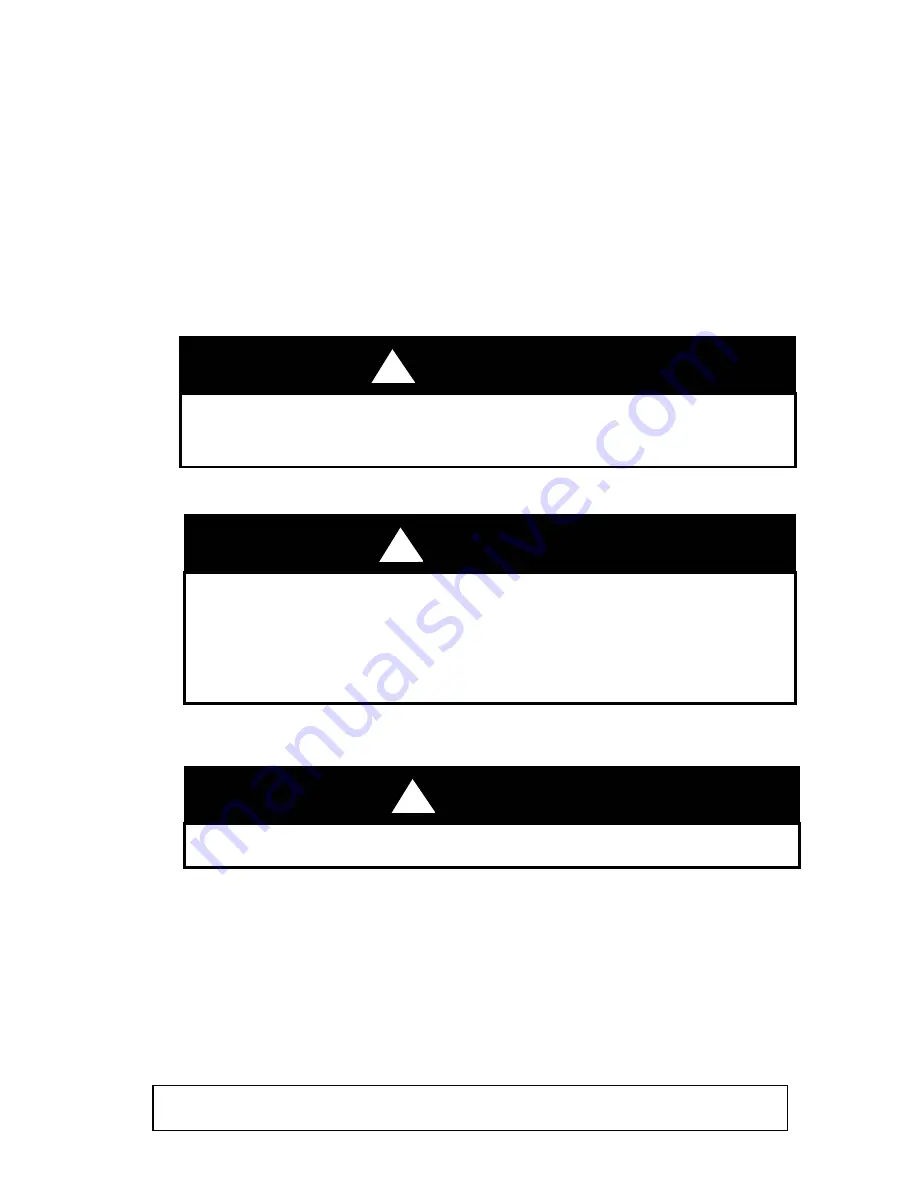
Quik & Quik GT450 Aircraft Operating Instructions
29
th
March 2007
Issue 1
Page 22 of 68
4.8. SPECIAL HAZARDS
You should be aware of the following special hazards and it is your duty to point them out to passengers and
spectators:
Propellers
Rotating, and indeed even stationary propellers pose potential dangers. Rotating propellers are very hard to
see, so special attention should be made to keep persons, and especially children and pets, clear of the
aircraft once it has been started. Persons should never stand either in line with the arc of the propeller or
behind it since there is always a possibility that stones or other objects can be picked up and hurled at great
speed in any direction. In the event of a propeller strike close down the engine immediately and do not re-
start until you are satisfied that no structural damage has been done to the propeller or airframe. If any
damage is visible, do not fly until the damaged blade has been repaired or replaced and the engine has been
inspected for shock load damage.
Running up and testing the engine on the ground, with or without the wing attached
Whenever you need to perform an engine check of any sort, particular care must be taken to observe the
following procedures:
1. Move the aircraft to an area clear of people, animals etc. ALWAYS LEAVE AMPLE ROOM AHEAD IN
CASE THE AIRCRAFT BREAKS FREE WHILE RUNNING UP.
2. Check the ground around the propeller area for loose stones etc. and remove any such objects.
3. Tie the aircraft to a solid object - a large and sound tree, a car with its parking brake applied, a concrete
post etc - using webbing or rope which is sufficiently strong to take a load of 225 kilos (500lbs) minimum.
Securely attach both ends of the rope/webbing to the rear axles of the Quik and Quik GT450 just inboard of
THE EXHAUST SYSTEM: Do not touch the exhaust while the engine is running or directly after it has been
shut down. It will be very hot and will inflict serious burns if touched. Keep items of clothing and the
aircraft's seat belts clear also. Inspect the entire exhaust system for cracks and damage before and after
each flight. Do not fly if there is any damage.
THE OIL SYSTEM: engine oil is stored in the reservoir underneath the left side of the engine. This
becomes very hot in use and will inflict serious burns if it comes into contact with human skin.
THE RADIATOR SYSTEM: The cooling system is pressurised when the engine is warm, so you should
never open the cap until the engine has cooled down. The coolant in the system is very hot and will inflict
serious burns if it comes into contact with human skin.
The coolant contains Ethylene Glycol which is harmful if swallowed. Do not attempt to siphon or drain the
coolant system by sucking on a tube.
Failure to observe this Warning could result in injury or death.
WARNING
!
WARNING
!
WARNING
!
















































